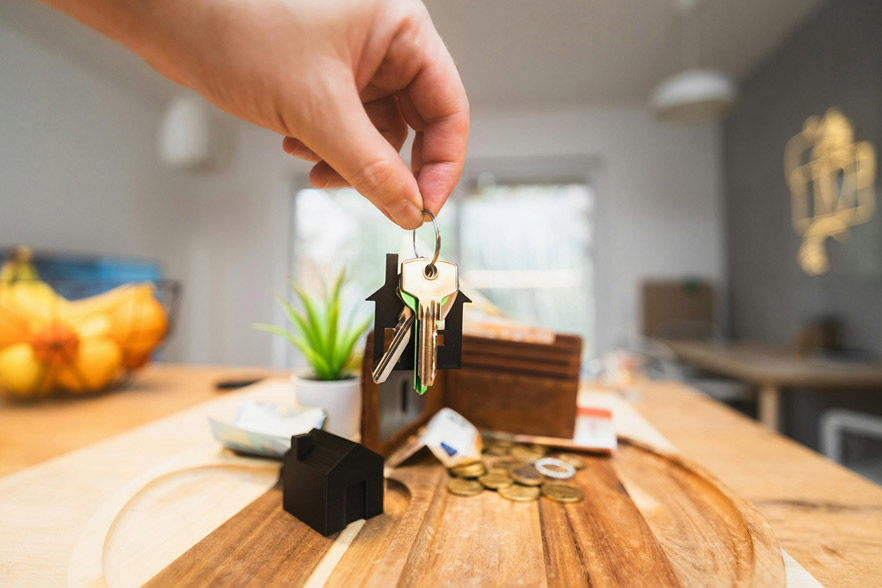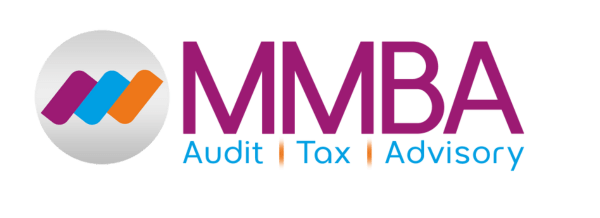
A Simple Guide for Landlords About the Rent a Room Scheme UK
Home / Rent a Room Scheme UK
Recent Blog
Subscribe to Newsletter
The Rent a Room scheme UK is a great way for homeowners and tenants all over the world to earn extra income by renting out a spare room in their own home. Another benefit of this scheme is that allows landlords to earn up to £7,500 tax-free per year from letting furnished accommodation to the newly coming inhabitants. For many, it’s a straightforward way to supplement rental income without complicated tax implications. For all such tax complexities, emanating from renting a home, MMBA Accountants help people to save themselves from looming liabilities threat, by staying compliant to regulatory standards.
If you’re considering taking in a lodger, this guide will walk you through everything that you need to know—from eligibility requirements to claiming rent a room relief, to paying tax, and to understand how this scheme interacts with council tax and universal credit.
Table of Contents
What is the Rent a Room Scheme?
The Rent a Room scheme is a government initiative. The primary motive of this scheme is to increase the availability of low-cost rented accommodation in the UK. It facilitates the new coming migrants from all over the world. Under this scheme:
- Landlords can earn up to £7,500 tax-free per tax year from renting out a room in their main residence.
- This limit is £3,750 if the property is jointly owned.
- The scheme applies to all residential properties across the UK.
- It does not apply to properties used as a guest house, hotel, hostel, or boarding house.
- Another aspect of this scheme is tax free allowance—if your total rent from letting out a room exceeds the tax-free allowance, you’ll need to declare your rental profits and pay tax accordingly.
Eligibility & Requirements
To qualify for the Rent a Room scheme UK, you must meet the following conditions:
- The room must be fully furnished. You must make sure that you are providing a good accommodation
- The property must be your main home. It must be a secondary residential place.
- If you’re a tenant, you’ll need your landlord’s permission before sub-letting.
- If you have a mortgage provider, check if your agreement allows you to rent out a room.
- Also, you need to inform your homer home insurance provider.
- There’s no limit to the number of rooms you can rent, but the £7,500 tax-free limit applies to your total income from all rooms rented.
Moreover, from HMRC website, have a detailed look on the tax codes, and how a particular tax code is applicable for a particular situation.
Contact MMBA Accountants to understand
the tax regularities involved!
Call us Today
How to Claim Rent a Room Relief
If your gross receipts (rent plus any charges for services like meals or cleaning) are less than £7,500, you are automatically exempt from tax, and you don’t need to do anything.
However, if your rental income exceeds the Rent a Room limit, you must:
Complete a Self Assessment tax return.
Decide how you want to be taxed:
- Option A: Pay tax in the normal way, deducting related expenses from your rental profits.
- Option B: Take £7,500 tax-free and pay income tax on the excess amount.
Keep detailed records of your total income, expenses, and payments received. Also, tell HMRC if you wish to opt out of the scheme and pay tax differently. Lastly, if you choose Option B, you must opt out every time you file a self assessment tax return.
Paying Tax on Rental Income
If your rental income exceeds the tax-free property allowance, you must declare it and pay tax. Here’s how:
- You’ll need to complete the property section of your tax return.
- If you’re a joint owner, the £3,750 tax-free allowance applies to each person.
- You can choose to deduct expenses (such as maintenance, insurance, and repairs) to reduce your taxable income.
- If you opt for the Rent a Room allowance, you cannot claim capital allowances or deduct expenses.
- You must submit your tax return by 31 January following the end of the tax year.
Rent a Room Scheme Advantages and Disadvantages
The rent a Room scheme has following advantages and disadvantages
| ADVANTAGES | DISADVANTAGES |
| Earn up to £7,500 tax-free per year | If total income exceeds £7,500, you’ll need to pay tax |
| Includes all charges made to the lodger (rent, bills, services) | You can’t use the scheme if your property is a hotel, hostel, or guest house |
| No need to file a tax return if you earn less than £7,500 | If you opt in, you can’t deduct expenses from rental profits |
| Simple tax-free way to earn extra income | If you have a joint owner, the allowance is halved (£3,750 per person) |
| Promotes healthier journeys | Limited choice of bike shops and equipment |
| Reduces carbon footprint | Depends on employer’s discretion to offer the scheme |
| Access to high-quality bikes and gear | Requires compliance with strict eligibility criteria |
| Encourages active and sustainable lifestyles |
Council Tax and Renting Out a Room

The other technicalities that come under this scheme include:
- If you rent out a room, you remain responsible for council tax.
- You can include council tax in the rent you charge.
- If you’re a single occupant receiving a 25% council tax discount, you’ll lose this discount by taking in a lodger.
Moreover, there are certain facets of renting a room that must be checked by the people lodging a room. If you rent out a room, make sure that you:
- Keep track of rental income and expenses.
- Decide whether to opt in or opt out each year.
- Submit your self assessment tax return if your income exceeds the Rent a Room limit.
- Check with your landlord, mortgage provider, and home insurance before sub-letting.
Universal Credit and Housing Benefit
If you receive Universal Credit, income from letting a room is not counted as long as it stays within the £7,500 tax-free limit.
Housing Benefit rules are more complex. Social housing tenants must check with their local authority to ensure they comply with regulations.
Additional Resources and Support
Conclusion
The Rent a Room scheme UK is a fantastic way to earn tax-free income by letting out a spare room in your own home. Understanding the eligibility requirements, how to claim Rent a Room relief, and how to pay tax will ensure you maximise your benefits while staying compliant.
By following these guidelines, you can make the most of the Rent a Room scheme and enjoy tax-free rental income while providing affordable accommodation in your UK home. It is important to check all the regularities before jumping into renting a home. This applies to both the parties—the one renting their space, and the one living in that room. For this, it is important to consult an expert, i.e. MMBA Accountants expert’s team, to remove any liabilities gap beforehand. If you have any queries, feel free to contact us.
Frequently Asked Questions
Can I claim the Rent a Room allowance on Airbnb rentals?
Yes, currently, the Rent a Room scheme applies to short-term lets, including Airbnb rentals. However, tax laws may change, so always check the latest rules.
How do I opt out of the Rent a Room scheme?
You must tell HMRC by 31 January after the end of the tax year in which you received rental income. This is done via your Self Assessment tax return.
Can I claim capital allowances if I use the Rent a Room scheme?
No. If you opt for the Rent a Room relief, you cannot claim capital allowances or deduct expenses from rental profits.
What happens if my rental income fluctuates above and below the £7,500 threshold each year?
If your total rent sometimes exceeds £7,500 and sometimes doesn’t, you’ll need to review your tax position each year. When your rental income is below £7,500, you’re automatically exempt from tax. However, if it exceeds the Rent a Room limit, you must complete a Self Assessment tax return and decide whether to:
- Pay tax on your actual profit (total rent less expenses).
- Take the £7,500 tax-free allowance and pay tax on the excess amount.
- Each tax year is treated separately, so you can switch between options as needed.
Can I use the Rent a Room scheme if I provide services like meals or cleaning?
Yes, you can still use the Rent a Room scheme even if you provide additional services such as meals, laundry, or cleaning. However, all charges made to the lodger—including rent and services—count toward your gross receipts. If your total income from the lodger exceeds £7,500, you’ll need to pay tax on the excess.


